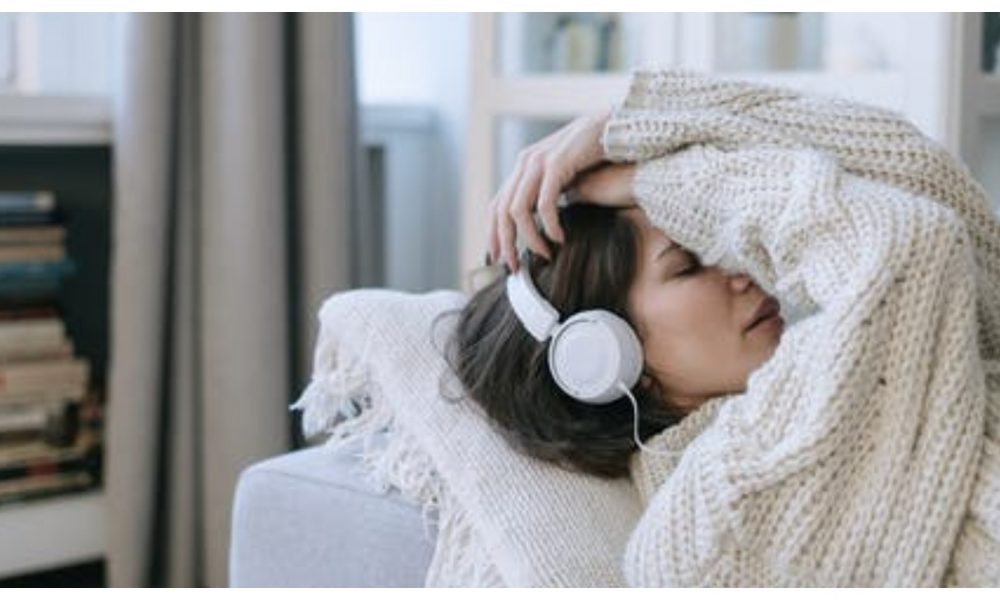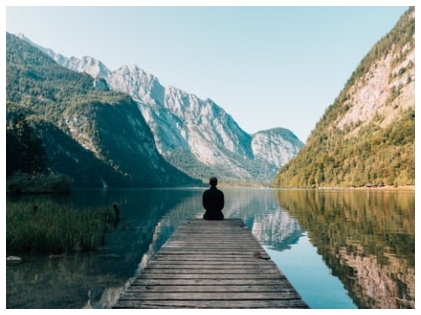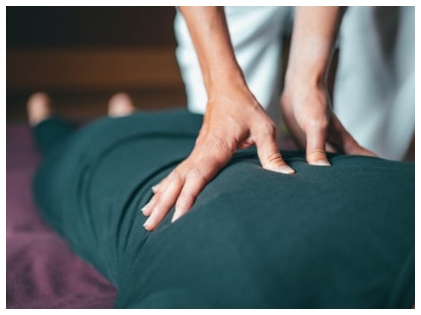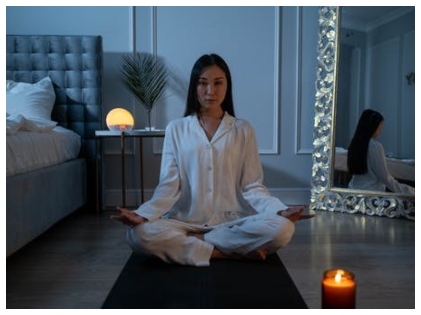
Safe Remedies for the Insomniac

Many people struggle with short-term insomnia, which is prevalent is a common sleep disorder that makes falling asleep and staying asleep difficult. Every person needs a different amount of sleep. So there is no set number of hours of sleep for every person. Most adults require something around seven hours of sleep every night. If your sleeping patterns are ill affecting your quality of life, there may be home remedies that could help you sleep. Try these things before you turn to medications that have side effects and pose the risk of addiction!
Mindfulness Meditation
 Mindfulness mediation is a steady, slow breathing exercise that you perform while sitting quietly. It involves observing your breath, thoughts, body, feelings, and sensation as they appear and disappear.
Mindfulness mediation is a steady, slow breathing exercise that you perform while sitting quietly. It involves observing your breath, thoughts, body, feelings, and sensation as they appear and disappear.
This practice has many health benefits that promote good sleep, reduce stress, boost immunity, and improve concentration. You can meditate as often as preferred. Even just fifteen minutes of meditation, morning and evening can make an impact.
Exercise
Exercise is a practice that boosts your health in multiple ways. You enjoy better moods, more energy, weight loss, and, most importantly – improved sleep. According to a study from 2015, participants exercised for a minimum of 150 minutes each week for six months.
It found that participants experienced considerably fewer symptoms o insomnia and reduced symptoms of depression and anxiety. This means to reap the same benefits. You should make sure you get at least 20 minutes of exercise every day.
Massage
 Another study conducted in 2015 found that massage therapy was highly beneficial for people struggling with insomnia as it improved the quality of sleep and improved daytime dysfunction.
Another study conducted in 2015 found that massage therapy was highly beneficial for people struggling with insomnia as it improved the quality of sleep and improved daytime dysfunction.
Massage has the potential to reduce feelings of pain, depression, and anxiety as well. If you cannot get a professional massage, you could try self-massage, which offers the same benefits. You can also ask your partner or friend to give you the massage.
Magnesium Supplements
This naturally occurring mineral is important for the relaxing of muscles and stress relief. In a study conducted in 2012, participants who took supplements of 500mg of magnesium every day for two months experienced reduced symptoms of insomnia. They also saw better sleep patterns. You could also add magnesium flakes to bath water and soak in the tub, as the magnesium will absorb right through your skin.
Lavender
Lavender is a powerful floral oil used for mood improvement, pain reduction, and sleep promotion. The common belief is that oral consumption of lavender is more effective at inducing sleep. In a study conducted in 2014, participants ingested lavender capsules.
The observations showed that the lavender improved sleep patterns in people with depression when taken with antidepressants. The lavender capsules seemed to reduce stress levels enough to induce sleep. 20 to 80mg of lavender orally each day or drinking of lavender tea is all beneficial for sleep.
Melatonin
 This is a compound that can help you fall asleep very fast. It is also capable of enhancing sleep quality. Research from 2016 shows that melatonin improves sleep quality significantly in people struggling with cancer and insomnia.
This is a compound that can help you fall asleep very fast. It is also capable of enhancing sleep quality. Research from 2016 shows that melatonin improves sleep quality significantly in people struggling with cancer and insomnia.
The recommended dosage is 1 to 5mg of melatonin half an hour to two hours before bed. It suggests that people use the smallest effective dose to reduce the likelihood of side effects, although it is a natural product.
Small Lifestyle Changes that Help to Improve Sleep
Another means of reducing the chance of having issues with sleeping at night is to avoid having caffeinated drinks. This includes sodas, nicotine products, and alcohol, which are all known to disrupt sleep. Also, it is best to avoid eating heavy meals at night. One should also refrain from having meals within two hours before bedtime. While exercise is great for sleep, it is important to try and get the exercise in the earlier hours of the day rather than closer to bedtime.
A hot bath or shower at the end of the day can help you relax and calm and ease into sleep mode. Avoid staring at screens for at least an hour or two before bed. This means phone screens, TV screens, and computer screens or tablet screens. Having a dark and cool bedroom also goes a long way in improving and inducing sleep. Try to only climb into bed when you tired. If you do not fall asleep in twenty minutes, it is best to get out of bed and work on something else until you feel sleepy.
More in Treatment
-
`
5 Reasons Why Dad’s Side of the Family Misses Out
Family bonds are intricate and multifaceted, often creating a unique tapestry of connections. However, many people notice a peculiar trend: stronger...
July 12, 2024 -
`
A Quick Guide on How to Get Short-Term Disability Approved for Anxiety and Depression
Living with anxiety or depression poses unique challenges, particularly in the workplace, where stress can exacerbate symptoms. For many, short-term disability...
July 5, 2024 -
`
Why Do People Feel Sleepy After Eating?
Is feeling sleepy after eating a sign of diabetes? Well, not directly. There are many reasons why you feel drowsy after...
June 20, 2024 -
`
What Is High-Functioning Depression? Symptoms and Treatment
High-functioning depression may not be a term you hear every day, but it’s a very real and challenging experience for many....
June 13, 2024 -
`
Kelly Clarkson’s Weight Loss Ozempic Journey – Debunking the Rumors
In a refreshing moment of transparency, Kelly Clarkson, the beloved singer and talk show host, sheds light on her remarkable weight...
June 3, 2024 -
`
What Is the Best Milk for Gut Health and Why?
In recent years, the milk section at the grocery store has expanded far beyond the traditional options. While cow’s milk has...
May 30, 2024 -
`
Do Dental Implants Hurt? Here’s All You Need to Know
When you hear “dental implants,” you might wince at the thought of pain. But do dental implants hurt as much as...
May 24, 2024 -
`
5 Key Differences Between A Psych Ward & A Mental Hospital
Curious about the differences between a psych ward and a mental hospital? You are not alone. With the mental health conversation...
May 16, 2024 -
`
It’s Official! “Selling Sunset’s” Christine Quinn & Husband Christian Dumontet Are Parting Ways
Have you ever found yourself unexpectedly engrossed in the personal lives of celebrities, especially when their stories take dramatic turns? Well,...
May 9, 2024










You must be logged in to post a comment Login